We’re all members of Alternate ROOTS, an organization which uses art and cultural organizing to uplift creations and efforts that directly address oppression in all its forms! March 31st was Trans Day of Visibility, a day to honor the lives of Trans folks while combating negative tropes or narratives around what it means to be trans! This year, we brought together members of the Alternate ROOTS Gender Equity squad to uplift narratives and experiences of transgender, non binary, intersex, and 2-spirit (TGNCNBI2-S) folks in the South, their relationship to visibility, the work they do, and the importance of celebration TGNCNBI2-S lives and legacies while they are alive. We asked them a few questions, so check out the responses below.
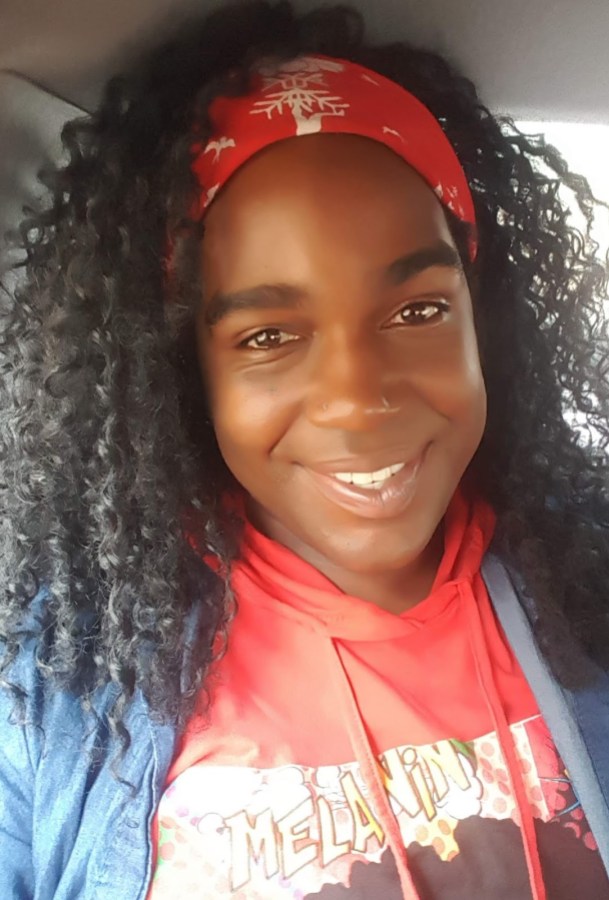
What is your name?
N. Nathalie Nia Faulk
How would you describe your work?
At the intersections of oration, history, performance, healing justice, cultural organizing, and individual and organizational development. Co-Director of Last Call (lastcallnola.org) Southern Organizer Academy (southernorganizer.org) and so many other things!
How would you describe your gender identity?
Ultimately as an Ebony Southern Belle! Pragmatically as Black Trans Femme nonbinary.
What are your pronouns?
I lead with They/Them and also accept She/Her
What does being Visible as a TGNCNBI2-S person mean to you? Benefits? Cons?
I think being visible brings a desire /destruction paradox. I think there are often people who see TGNC folks and are immersed in a wave of desire. Desire to know more about them, desire to access the freedom we have, desire to live in their truth, and yes Desire to love us. But because of the trap that is patriarchy and white supremacy, there is an element of cognitive dissonance that leaves room for destruction. This leads to violence, transmisogyny, and tranmisygnoir. Ultimately though, visibility means our community sees themselves in positions of power, in the history books, media, politics, and we are reminded of our inherent value because of it.
Why is it important to celebrate TGNCNB2-S Visibility ? How do you celebrate?
Because we are the blueprint for radical transformation! Trans and gender non- conforming folks, and black women and femmes, have been the healers, leaders, culture creators, at the forefront of everything since the beginning of time. This celebration reminds us and everyone around us to honor this legacy and to continue to radically imagine a world where TGNCNBI2-S folks are all living lives of abundance.The world is better and more free when our cultural practices and magic is made visible. I will be at a demonstration, then in the park, then on zoom with my people! I celebrate with affirmations, dancing, dreaming, and white wine hunny.
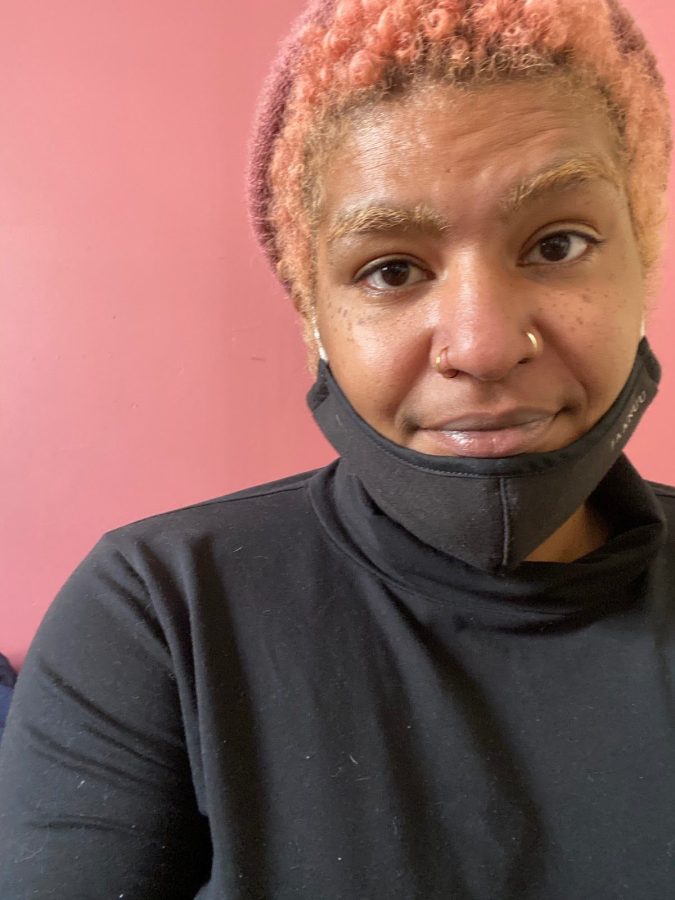
What is your name?
indee
How would you describe your work?
I am a performance based artist and cultural worker rooted in a radical queer Black feminist politic. I hold space for TGNC artists and community to gather and play.
How would you describe your gender identity?
When I was young my mama told me that indee means the flow of the river. Over the years I’ve grown to define my gender identity the same way. We flow and shift and change day by day. On forms I tend to check “other” and add in “non-binary trans”
What are your pronouns?
They/Them/Theirs & He/Him/His
What do you love about being a TGNCNBI2-S Artist in the South?
Black People. And I know we everywhere, but Black SOUTHERN people are and will always be my heart. The way we love up on each other. Take care of each other. Check up on each other, sometimes a little too much. It’s the cadence of our little sayings, the burst out loud laughter. The dramatics in the everyday stories of nothing. I love Black southern people.
What does being Visible as a TGNCNBI2-S person mean to you? Benefits? Cons?
It means being hyper-visible and invisible at the same time. It means being the only one, or one of two. It means having to speak on behalf of others. It means if I don’t say something, then no one will.
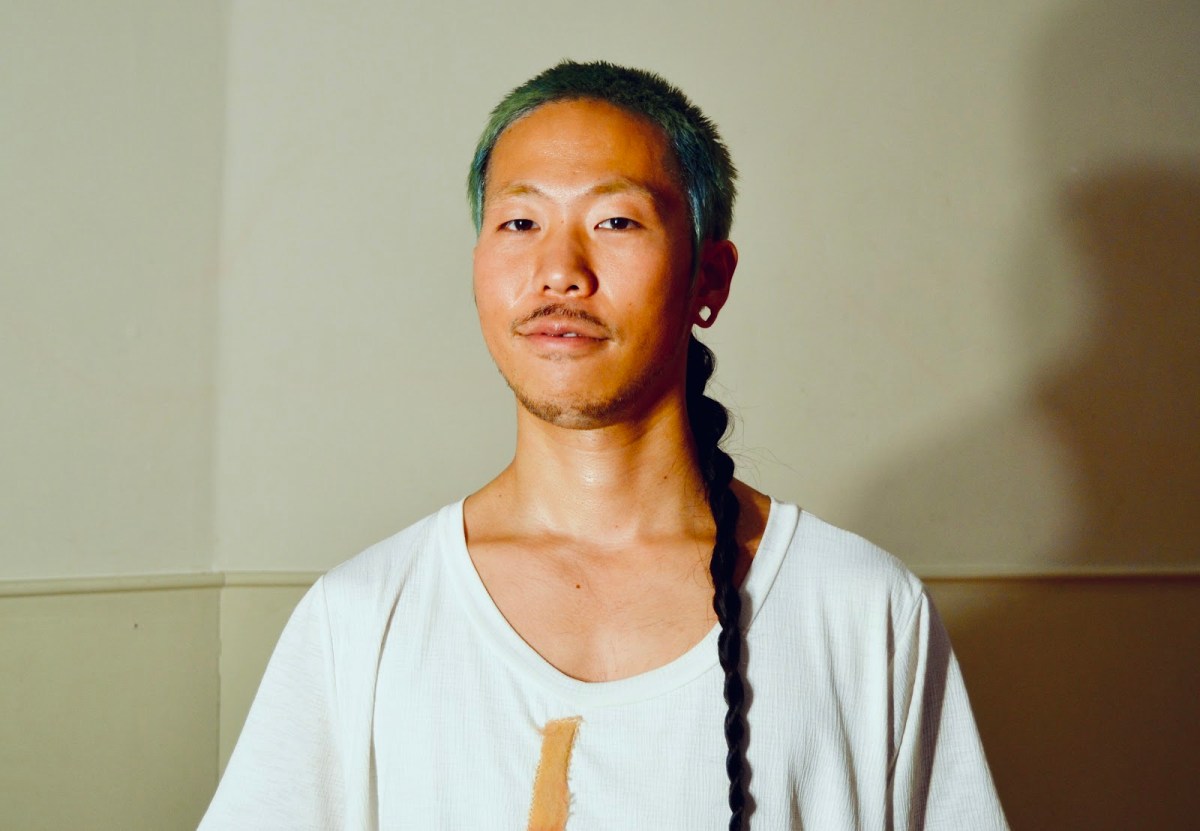
What is your name?
岩下龍太 (Ryuta Iwashita)
How would you describe your work?
My work has been focused and loosened around performing arts, movement/somatics and an embodied self-actualization practice called “SOTAI,” which derives from my fluid life being between my home country, Japan and the United States.
How would you describe your gender identity?
The awareness of an embryo. Expansive, unconditional and poetic.
What are your pronouns?
They/them
What are the biggest challenges about being a TGNCNBI2-S Artist in the South?
The feeling of scooping water out of the ocean with a small bucket.
What does being Visible as a TGNCNBI2-S person mean to you? Benefits? Cons?
Visibility for me is awareness of spaciousness and ease. Cis, hetero, white culture’s emphasis on “filling up space with information” and “getting to the point” does not leave us spaciousness and ease. When the fluidity in my body is noticed and acknowledged, the space becomes tender, and tenderness invites vulnerability and intimacy, which we often are conditioned not to share with people.
Why is it important to celebrate TGNCNB2-S Visbility? How do you celebrate ?
As much as I enjoy shaking my body and screaming out loud, I would be celebrating TGNCNB2-S Visibility with deep rest in my ancestral body which includes all the mixed identities and formless containers. It is our core, seed and infinite wisdom.

What is your name?
Hannah Pepper or HP
How would you describe your work?
I’m a film and theater actor and collaborative performance maker.
How would you describe your gender identity?
I would describe my gender identity as fluid and nonconforming.
What are your pronouns?
They, she, he and ze.
What do you love about being a TGNCNBI2-S Artist in the South?
The South has such a strong history of resisting white supremacist patriarchy, and with that comes a rich history of trans brilliance and gender liberation. As a white person not from the South, when I moved to New Orleans 12 years ago, I immediately recognized how lucky I was to be able to come into my own TGNC identity in a place where so much space for TGNCNBI2-S identities has been and continues to be created, especially and continuously by Black trans folks. I love that the South has such a deep history of movement building through cultural organizing, because as TGNC folks, we are constantly creating cultures for ourselves, and here we can really see the way that is creating ripples of real change in the world around us.
What are the biggest challenges about being a TGNCNBI2-S Artist in the South?
Less specific to the South, but as an actor, sometimes I am sad that my gender fluidity is not legible to folks I collaborate with; the discourse around authenticity in film and performance can make me feel like I am continuously inauthentic because my gender is not fixed. On a larger and more pervasive level, the ongoing toll that racial capitalism and structural violence has on TGNCNBI2-S folks, especially BIPOC folks, is an existential threat to TGNCNBI2-S artists in the South. We make so much brilliance with so little, but it makes me sad to think of what would be possible were our communities not under constant threat of displacement and death.
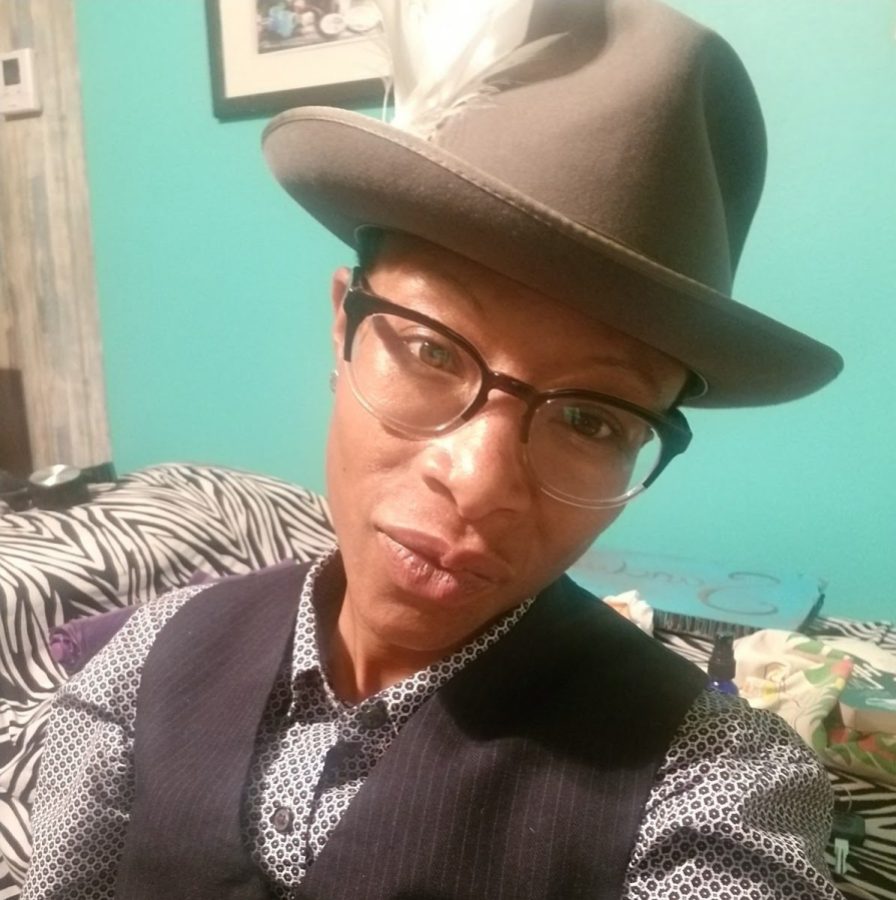
What is your name?
Spirit Paris McIntyre
How would you describe your work?
I’m a cellist, lyricist, vocalist, writer, Reiki practitioner, Compassionate Facilitator, Visual Artist, and Community Organizer
How would you describe your gender identity?
Gender Expansive
What are your pronouns?
Spirit, They, and Them
What do you love about being a TGNCNBI2-S Artist in the South?
The South, especially New Orleans, has given me the space to experience the presence of Ancestors and Spirit without judgement. This has and continues to shape my way of being, thinking, feeling, exploring, and expressing. They walk so potently among us here, it is undeniable.
What does being Visible as a TGNCNBI2-S person mean to you? Benefits? Cons?
It means taking up space intentionally; feeling something and saying something; leaving things better then when you found them. Benefits – you can uplift others; Cons – folks want to determine how you lead and who you center.
Why is it important to celebrate TGNCNBI2-S Visbility? How do you celebrate?
Being seen, understood, and celebrated is very important to me as a Leo. There is a deep compassion and vulnerability that’s needed to honor one’s multiplicity, nuance, and intersections. Being able to honor it in myself so that I can hold space for the honoring of it in others within the larger TGNC+ community is necessary for our freedom! Everyday is an opportunity to unlearn harmful oppressive narratives that constrict expression, so that we can heal and more fully be exactly what our Transcestors and Ancestors have envisioned for us. I celebrate by leaning into my curiosity, this keeps me open…
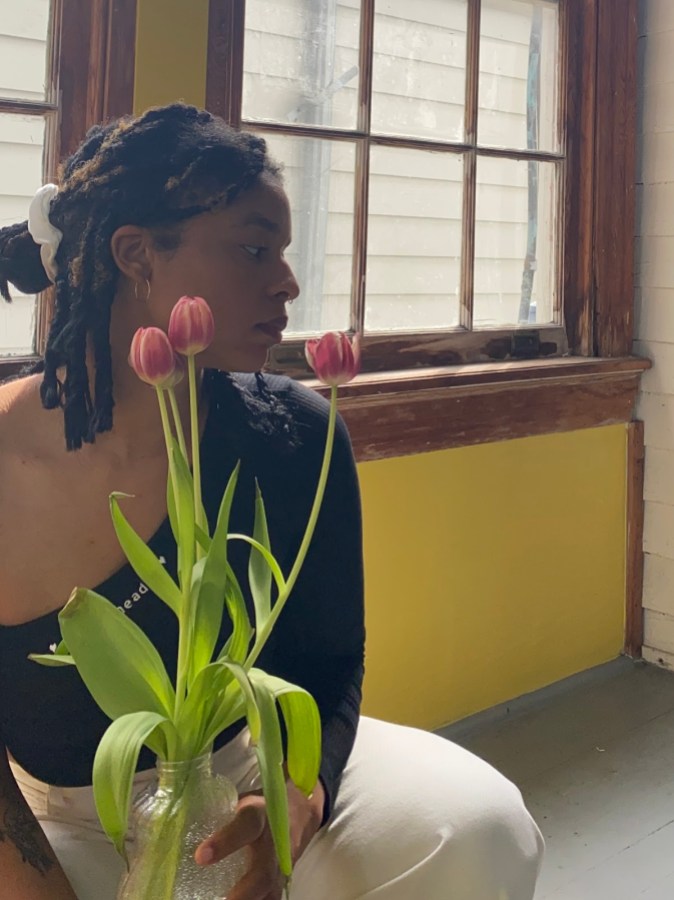
What is your name?
Ryan ( Raven) Crane
How would you describe your work?
I’m a multidisciplinary artist, critical thinker, and curator. I co-curator a gulf-south exhibition called The Black Brown Biennale and I am a co-conspirator in Black ™: a text and performance-based collaboration between myself and Slant Rhyme.
How would you describe your gender identity?
Lately, I haven’t really attempted to describe my gender, as I am a bit fatigued on the topic of gender but, my “gender” is tied into my Blackness, and in the tradition of Audre Lorde’s, “naming myself for my self . . .” I would say trans and gender non-conforming. I am originally from “Houston, Texas” the occupied lands that are home to the Karankwana, Coahuiltecan, Atakapa-Ishak, and Sana tribes. There is a rich history in my lineage of farmers, sharecroppers, cowboys, and southern Black folks who steward the land so my gender is also “cowboi” and “cowthemme”.
What are your pronouns?
They/ He/ El/ Elle/ Ryan
What do you love about being a TGNCNBI2-S Artist in the South?
I love being a part of the rich tradition of BIPOC trans visual artists, musicians, and movement workers. I love the weather, the food, the richness of the land, the gulf south waterways, and our ability to do so much with what we have. It’s like throwing shade in face of white supremacy every day getting to be Black, trans, an artist, and in the south! Infrastructurally and systemically the odds are often against southern trans artists so connecting and supporting my community is imperative.
Why is it important to celebrate TGNCNB2-S Visibility? How do you celebrate ?
Visibility is a trap as long as we live in the ongoing colonial project. For me, it’s important to not only celebrate but to support, and continue to be vocal about a world where TGNC+ people thrive. I want my BIPOC Trans siblings to get tangible reparations, Land Back, arts, and culture back in our communities and not stolen away in museums, and an acknowledgment that TGNC+ BIPOC have always been at the forefront of cultures and movements on Turtle Island and abroad. I can’t reiterate enough that Trans folks have always been present throughout history, celebrating visibility isn’t enough, and (pre-colonzaination) our Black and Brown TGNCNBI2-S ancestors were an integral part of the vibrant fabrics of our communities. I want trans folks to thrive, and to be cared for like the way we do for the community and each other. This means an investment in liberation. I want Black trans women to be paid, migrant trans folx to move in borderless lands, gender affirming surgeries for free as a part of healthcare for all, and for BIPOC Trans folks to know of and be able to remember our pre-colonial lives and have to access to our histories, art, and culture.



I love this. Thank you all for sharing.
This is absolutely stunning. Thank you!
Thank you for this!
NIA! So excited to see this here from you <3 and the featuring of so many beautiful and revolutionary TGNC+ folks from New Orleans! Thank you to each person for sharing.
Excellent article ROOTERS🙌🏾💜
So great!!! Thank you!